Meet Randy Aust
FROM THE OCTOBER 22 NEWSLETTER
Mr. Aust, thanks for chatting. How did you get started teaching?
Initially, I was planning on applying to law school after my undergraduate, but in a series of (fortunate) events I applied to each at my alma mater to teach high school theology. Fourteen years later (and a Masters Degree from Boston College in Theology) I can say that I can’t imagine doing anything different with my life.
14 years of teaching! I’m sure you’ve seen many schools in that time, what stands out to you about John Paul the Great?
This is the first school I've taught at where we are a totally unified faculty all pursuing the same thing, which is to share Jesus Christ with our students. I've only taught at Catholic schools, and so it may be kind of surprising for some of our readers that most of those Catholic schools do not have a mission aligned faculty. And so, it's been just such an incredible joy, as a theology teacher and somebody who really cares about this, to be in a room with like-minded adults, not talking about whether we should share Jesus Christ with our students, but how we can best do that. And I think our students are really benefiting from that kind of mission coherence and mission alignment from the faculty and staff in the building. And I was expecting that when I accepted this position, but I've been just blown away by how mission aligned our faculty is in support of that.
That’s powerful! How has the classical curriculum played a role in how you teach?
In the classroom, it's been really neat to see how a classical, liberal arts curriculum is bringing literature and history and theology all together into one. We're having conversations in our humanity seminar and kids are bringing in stuff that we're talking about in theology class and conversations from their literature class and knowledge from history class. It's all kind of coming together. I've had multiple students remark to me how neat it is to have that kind of coherence in the classroom where it's not this compartmentalized approach. All this stuff is coming together in a really neat and, I think, profoundly beautiful way that's going to make a lot of sense for our kids.
What kind of encouragement would you give to a parent or family discerning John Paul the Great?
Gosh, that's a great question. I would say two things. One would be a word of caution about other Catholic schools. I think a lot of schools out there, and parents might not be aware of this, will say one thing to orthodox Catholic parents, and then say another thing to more secular, world-focused parents. And what ends up happening in those schools is your son or daughter is now immersed in a culture. And that culture, if it's not mission aligned, is going to be teaching things that might be contrary to what's being taught in the home or what's being taught at your parish.
We don't have that problem here. Like I said earlier, this is a mission-aligned school. And so, it would be a word of caution about that. But I would also say one of the things that we've done really well so far is focus on human formation.
I think sometimes Catholic liberal arts schools can form students in a way that is really beautiful when they're in the building, but they're not really forming the students for the world. I think one of the common themes that's emerged at this school is we're trying to form intentional disciples here at John Paul the Great, who can then go out into the world and engage the world as messed up and as crazy as it is. But they're not going to be this kind of insular community where everybody's reading St. Thomas Aquinas and they're all praying together. But to actually go out and be disciples and engage the world on its own terms and transform the world, I mean, that's what made our patron saint so great.
He didn't hide away in a cloister. He went out into the world. And so, I would say if you want your son or daughter to be in the world, but not of the world, I think that's what we're trying to really get at here. We're not going to shelter your kid, but we're also going to equip them to be faithful disciples of Jesus Christ at whatever college or university or seminary they end up at long after they graduate from John Paul the Great.

